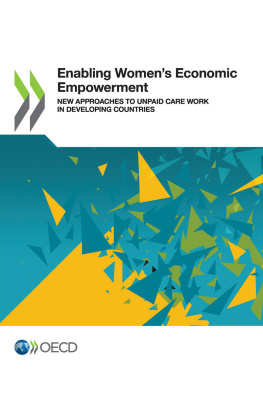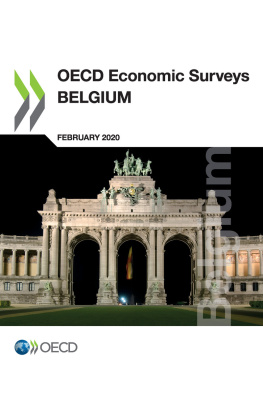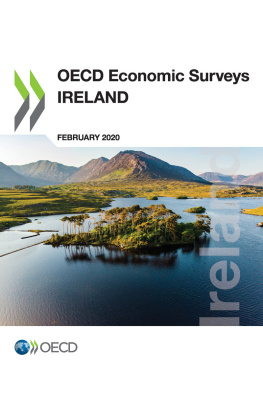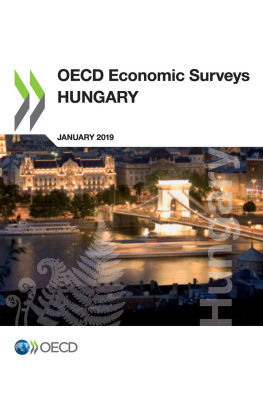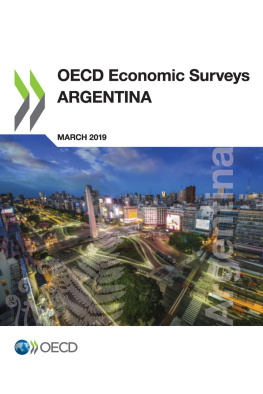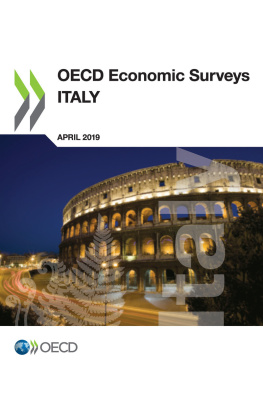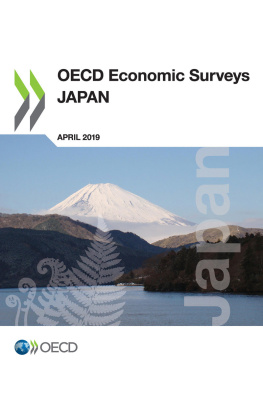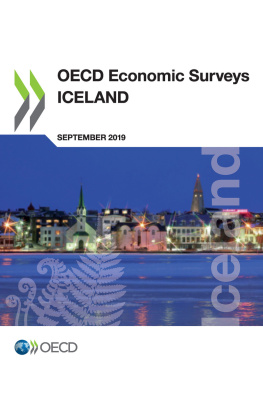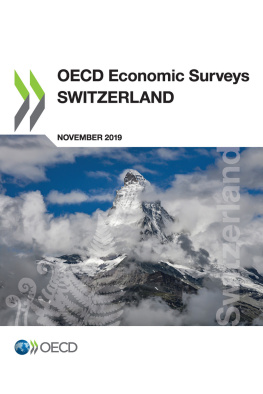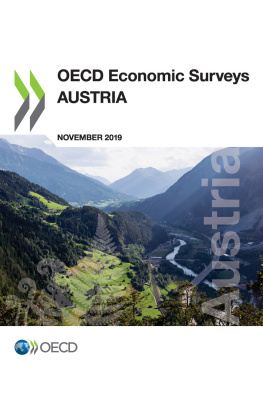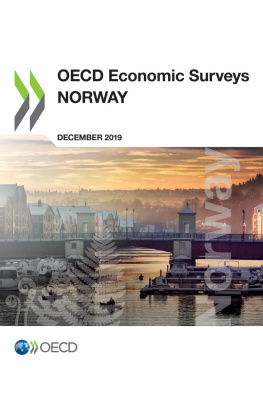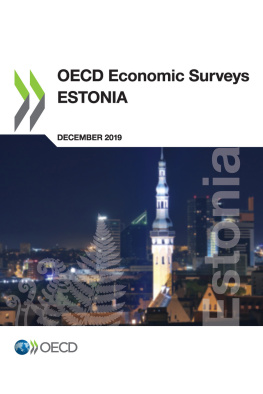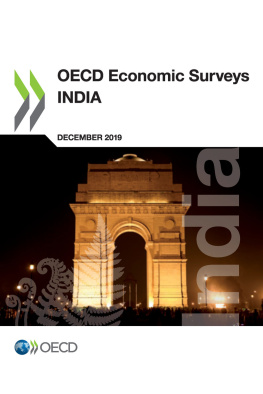OECD - Enabling Women’s Economic Empowerment
Here you can read online OECD - Enabling Women’s Economic Empowerment full text of the book (entire story) in english for free. Download pdf and epub, get meaning, cover and reviews about this ebook. year: 2019, publisher: OECD Publishing, genre: Home and family. Description of the work, (preface) as well as reviews are available. Best literature library LitArk.com created for fans of good reading and offers a wide selection of genres:
Romance novel
Science fiction
Adventure
Detective
Science
History
Home and family
Prose
Art
Politics
Computer
Non-fiction
Religion
Business
Children
Humor
Choose a favorite category and find really read worthwhile books. Enjoy immersion in the world of imagination, feel the emotions of the characters or learn something new for yourself, make an fascinating discovery.
- Book:Enabling Women’s Economic Empowerment
- Author:
- Publisher:OECD Publishing
- Genre:
- Year:2019
- Rating:4 / 5
- Favourites:Add to favourites
- Your mark:
- 80
- 1
- 2
- 3
- 4
- 5
Enabling Women’s Economic Empowerment: summary, description and annotation
We offer to read an annotation, description, summary or preface (depends on what the author of the book "Enabling Women’s Economic Empowerment" wrote himself). If you haven't found the necessary information about the book — write in the comments, we will try to find it.
OECD: author's other books
Who wrote Enabling Women’s Economic Empowerment? Find out the surname, the name of the author of the book and a list of all author's works by series.
Enabling Women’s Economic Empowerment — read online for free the complete book (whole text) full work
Below is the text of the book, divided by pages. System saving the place of the last page read, allows you to conveniently read the book "Enabling Women’s Economic Empowerment" online for free, without having to search again every time where you left off. Put a bookmark, and you can go to the page where you finished reading at any time.
Font size:
Interval:
Bookmark:
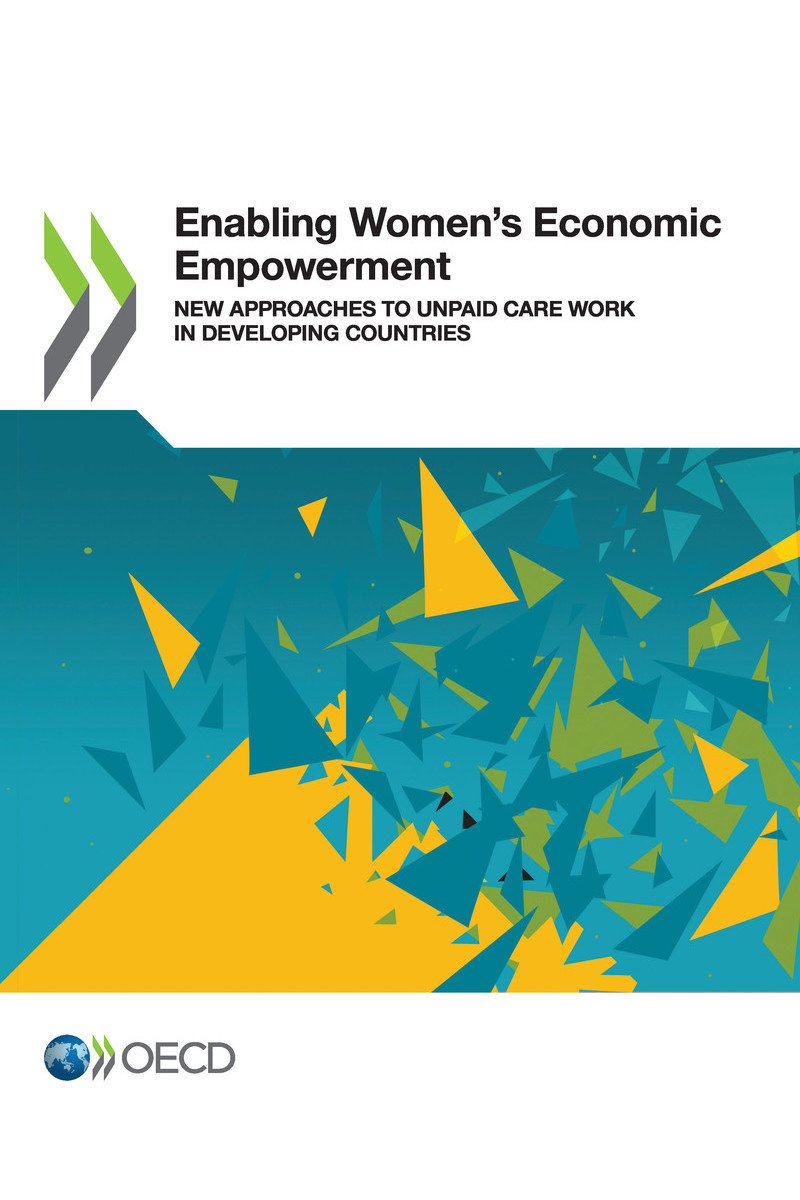
OECD (2019), Enabling Womens Economic Empowerment: New Approaches to Unpaid Care Work in Developing Countries , OECD Publishing, Paris, https://doi.org/10.1787/ec90d1b1-en .
The OECD Policy Dialogue on Womens Economic Empowerment supports governments and development partners in their efforts to achieve womens economic empowerment in developing countries. The Policy Dialogue is co-ordinated jointly by the OECD Development Co-operation Directorate, the Development Centre and Statistics Directorate. The initiative brings together their unique expertise and networks to identify policy and programme solutions to promote womens economic empowerment, including by recognising, reducing and redistributing womens unpaid care work, combined with inclusive dialogues at the regional and global levels.
The Policy Dialogue initiative draws on the comparative strengths of the three co-ordinating directorates within the OECD. The Development Co-operation Directorate (DCD) and the Development Assistance Committee (DAC) Network on Gender Equality and Womens Empowerment (GENDERNET) are working together, both to scale up financing for gender equality and to improve donor effectiveness in programming for womens economic empowerment. The OECD Development Centres Social Institutions and Gender Index (SIGI) examines how gender inequality is shaped by discriminatory laws and social norms that affect womens and girls lives. The OECD Statistics Directorates work on time-use data and analysis helps to understand how women and men spend their time, and allows for cross-country comparison.
As an output of the OECD Policy Dialogue on Womens Economic Empowerment, this report focuses on identifying what works to address unpaid care work a situation that can prevent womens full participation in the economy. At the same time, care needs are growing globally, requiring action by governments and development partners to meet the needs of families and communities. The importance of addressing the burden of unpaid care work is recognised in Sustainable Development Goal (SDG) 5 through adoption of Target 5.4: Recognise and value unpaid care and domestic work.
The report examines the four policy sectors highlighted in SDG Target 5.4: infrastructure, social protection, public services, and promotion of shared responsibility within the household. To understand the different approaches to each of the four sectors and their relevance to and effectiveness in different contexts the research team conducted a global literature review and three in-country research visits to Brazil, Kenya and Nepal, chosen for their geographic, policy and socio-economic diversity, as well as cross-country analysis to inform policy recommendations.
The study was led and developed by Annelise Thim, Policy Analyst for Womens Economic Empowerment, OECD, under the oversight of Lisa Williams (OECD Development Co-operation Directorate) and Bathylle Missika (OECD Development Centre). Additional input and support was provided by Jenny Hedman, Lorenzo Pavone, Gaelle Ferrant, Carlotta Balestra, Anil Alpman, Patricia Molinos-Ruperez, and Cristina Gratiela Chiran.
The consultancy firm Social Development Direct conducted background and field research for the study and developed initial drafts of the report: Sally Baden supervised the project; Catherine Muller designed the framework and methodology for the country studies (Chapter 2) and was the lead author for Chapter 3 on shared responsibility within the household and chapter 4 on infrastructure; Zahrah Nesbitt-Ahmed was the lead author for Chapter 5 on social protection; and Susan Joekes the lead author for Chapter 6 on public services.
The report greatly benefited from comments from the OECD Policy Dialogue Advisory Group, which reviewed key outputs of the research. For their valuable insights, the OECD would like to thank the members of this group: Isabella Aboderin (African Population and Health Research Centre), Linda Cerdeira (Promundo), Natalia de Oliveira Fontoura and Joana Mostafa (Institute for Applied Economic Research), Sarah Gammage (International Center for Research on Women), Thalia Kidder and Nikki Van der Gaag (Oxfam), Henriette Kolb (International Finance Co-operation), Mona Sherpa (formerly Helvetas), and Nina Shuler (formerly UK Department for International Development). Willem Adema and Maciej Lis (OECD Employment, Labour and Social Affairs Directorate) and Alexander Pick and Carolina Tassot (OECD Development Centre) also participated in the Advisory Group meeting and provided comments.
The OECD also gratefully acknowledges the participation of some of the members of the DAC Network on Gender Equality (GENDERNET), who provided input, comments and suggestions for this study.
The time and effort invested by those who were interviewed in the field are greatly appreciated. This study would not have been possible without their active participation.
Font size:
Interval:
Bookmark:
Similar books «Enabling Women’s Economic Empowerment»
Look at similar books to Enabling Women’s Economic Empowerment. We have selected literature similar in name and meaning in the hope of providing readers with more options to find new, interesting, not yet read works.
Discussion, reviews of the book Enabling Women’s Economic Empowerment and just readers' own opinions. Leave your comments, write what you think about the work, its meaning or the main characters. Specify what exactly you liked and what you didn't like, and why you think so.

